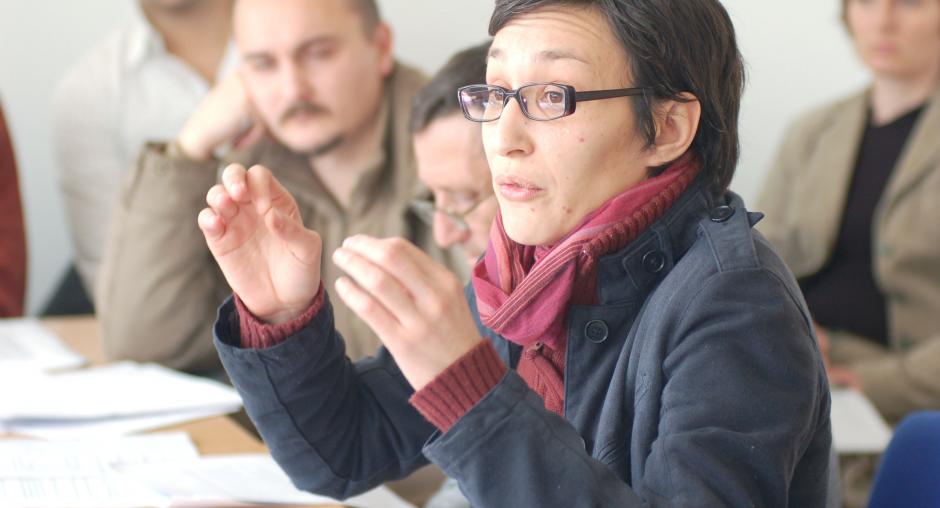OSCE-supported Press Council helps improve Kosovo's media landscape
But when the situation in Kosovo had stabilized and democratic processes were well under way - in which the OSCE Mission in Kosovo had a leading role - it was time to put the media in charge of regulating itself.
"Our aim was to create an institution that would not only empower the local print media, but also be run by them," says Zenet Mujic, who co-ordinates the work of the Mission's Media Unit.
So in May 2004, the OSCE began the process of establishing a self-regulatory media body - the Press Council of Kosovo (PCK) - that would include the Editors-in-Chief of all the local newspapers, regardless of language.
Democratic indicator
"The existence and functioning of a self-regulatory body that is entirely independent - politically and financially - of government structures is an important indicator of the level of media democracy in any society," adds Mujic.
The most challenging aspect of creating the Council, she says, was bringing together print media from different ethnic backgrounds and convincing them that self-regulation was necessary and they could counter-balance each other.
Individual and group discussions were also held with representatives of all print media outlets prior to the drafting of a Code of Conduct and Terms of Reference for the PCK, which became operational in September 2005.
"All the newspapers which joined the Council did so voluntarily. They have also signed the Press Code of Conduct, which assures media reporting in compliance with the highest professional and ethic standards, and committed themselves to uphold it," Mujic says.
Learning process
Jelena Bjelica, Editor-in-Chief of Gradanski Glasnik - one of the three Kosovo Serbian newspapers - adds: "Being a member of the Press Council enables us to take part in a learning process where we can all benefit from discussions and consultations with our fellow Editors-in-Chief."
Joining the PCK has also had a strong impact on the reporting of many print media. Newspapers that formerly had a reputation for being politically influenced, such as Bota Sot, have become more cautious and reliable in their reporting.
"After we joined the Council, I tried my best to make sure the paper did not violate the Press Code," says Gani Mehmetaj, the former Editor-in-Chief of Bota Sot.
But in a highly politicized society as Kosovo, the pressure that Editors-in-Chief sometimes find themselves under means that they are not always able to live up to their promises. The Council members therefore decided to appoint Willem Houwen, a Dutch national who heads the Kosovo Institute for Journalism and Communication, to chair its board.
Better journalism
"The board and I have the impression that despite all the influences on them, the papers are now much more careful about incitement, and practice better journalism," says Houwen.
The OSCE's support for the work of the Council also includes providing advice, sponsoring promotional activities and monitoring. The latest project financed by the Mission's Media Unit was an awareness-raising campaign which ran through January 2007, increasing the Council's visibility and explaining its role to a wider audience.
"We believe that the Press Council is contributing greatly to freedom of the media and that it is also helping increase media's accountability to the public," says the OSCE's Mujic.
"And though there are still issues with the financial sustainability of the Council, its role thus far has helped to greatly improve the media landscape in Kosovo. There is no doubt that it will continue to have a positive influence in the future," she concludes.

